AND FOR MY FINAL TRICK: SPOILERS!
As I mentioned in last week’s blog review, the final two episodes of STAR TREK: PICARD‘s first season left me feeling quite disappointed and ended things on a distinctly bad note for me (and many others).
As season two drew to a close, a strong series of early episodes stumbled as the show approached the finish line, with episodes 7 and 9 (as opposed to 7 of 9) significantly missing the mark for me. So going into the final, 10th episode, “Farewell,” I was ready for either a second-in-a-row disappointment or else a triumphant salvation. What I got was…
…a little bit of each.
On the good side, there were several powerfully emotional moments, elegantly acted with touching music, that left me tearing up. There were also some fun easter eggs thrown in for the hard-core Trekkers to cheer (or complain) about. And of course, everyone got their happy ending…except Adam Soong, who got a more ominous ending (but perhaps happy for him).
The scene with Taillinn finally talking face-to-face with Renée was beautiful. The exciting sequence trying to stop Soong’s drones and get Renée safely onto the rocket was textbook action and suspense (even if it was super-obvious that the Renée who came out of the ready room was really Taillinn in disguise). And the scene with Picard and Q was masterful, even though it left way more questions frustratingly unanswered (more on that later). But seeing these two accomplished thespians (SIR PATRICK STEWART and JOHN DE LANCIE) playing off each other as Q prepares for his final farewell was simply a treasure and pleasure to watch…campy though it was, I didn’t care.
On the bad side, the episode was a bit of a hurried mess. Having let every storyline slowly percolate for most of the season, the final episode needed to…
- Wrap up the Renée Picard storyline in some exciting way;
- Include the sacrifice of at least one character (more on that shortly);
- Get Raffi and Seven back together;
- Resolve the Rios/Teresa romance plotline;
- Give Kore a final confrontation with her “dad”;
- Leave Soong defeated;
- Wrap up the storyline with Q and answer any lingering questions;
- Get the team back to the future to finally pay off the scene at the end of episode one that got them there;
- Reveal the masked Borg Queen as Agnes Jurati;
- Establish that Elnor is alive;
- Include a scene with Whoopi Goldberg to explain why she didn’t clue-in Picard way back in episode one about what was to come ;
- Get Picard and Laris together;
- Leave an opening for a plot element that could continue into next season.
That would have been a lot to squeeze into THREE episodes, let alone just one! As such, all of Soong’s evil plans are foiled in the first 17 minutes of a 45-minute episode (not counting recap and closing credits). The final scenes in space last a total of 7 and a half minutes.
After the relatively even pacing of the first half of the season, these final two episodes and especially this last one felt very rushed and didn’t allow much time for, well, much of anything. For example, Kore’s big confrontation with Soong lasts all of twenty seconds. It was satisfying to see her wipe all of daddy’s files (which were, of course, never backed up onto external hard drives, unplugged, and stored in a closet somewhere). But really, to paraphrase V’Ger, “Is there nothing more?” Apparently not…no time!
And then there was the ugly side. Nothing in this episode was quite as bad or ridiculous as the giant metallic “space kraken” that tried to enter our universe and destroy all organic life at the end of season one. But this episode (and season) did suffer a bit of tail-wagging-the-dog syndrome. And what this means for a script is you get very convoluted and not entirely believable explanations for things in order to drive the story.
Here are a few examples. First, in order to have the “big reveal” that the Borg Queen was actually Agnes, the Queen appears in episode one with a mask on…for no apparent reason (other than the big reveal). Indeed, NOT having the mask on would have done more to make Picard trust her than playing Non, je ne regrette rien (which translates to “No, I do not regret anything”). Wouldn’t it be better to have shown her face and say, “Jean-Luc, I need you to trust me. I am Agnes Jurati, and there is an immediate danger that we must come together to deal with or else billions will die.” Instead, she opts for the unidentified-Borg-Queen-wearing-an-ominous-black-mask approach while playing French music. Wouldn’t have been my first choice, folks.
Another example is Raffi breaking into Soong’s state-of-the-art, tamper-proof security measures with “tools”—pliers, scissors, whatever Seven and Rios could get their hands on (like giving the Professor on Gilligan’s Island some bamboo and a coconut and watching him build a radio!).
Or perhaps the worst example: trying to have older Guinan explain why she didn’t tell Picard anything about their meeting in 2024. Of course, the reason is that the story arc needed for Picard to be clueless. But when the tail (or in this case, the tale) wags the dog, you get clumsy “explanations” like this…
Okay, let’s take a little closer look at the good, the bad, and the ugly going character by character…
WAS THE TREK REALLY NECESSARY FOR PICARD?
Typically, the hero has to get the girl (or boy or gender non-specific individual) in order to cement the happy ending. And Picard ultimately returns to Laris, synthetic heart in hand (not literally!), and gives her those French poodle-dog eyes that just say, “Aw, shucks, little lady, ah’ve been such a heel and y’all are so swell. Can ya see it in yer heart ta take me back?” (He’d probably use a British—not a cowboy—accent, though.) And of course, she melts. So…yay. Picard has gotten over his fear of commitment. What a fine, healing journey this has been for him!
But strangely, I don’t feel as though Picard has achieved anything all that significant this season. And while I usually avoid quoting other reviewers, the always-insightful LACY BAUGHER from Den of Geek put it so perfectly that I have to relay what she said in exactly her words…
Part of the problem is the idea that whatever dark memories were banging around Picard’s head were so paralyzing that they crippled his life in some significant way in no way reflect his actual arc as a character. Did they keep him from being a leader? Making difficult choices or empathetic decisions? Forming real and lasting emotional bonds with others? Sympathizing with former enemies? Well, no, because he’s done all these things before. We’ve seen him. There’s a whole show about it.
Basically, whether this season works for you or not is largely going to hinge on whether you think this extended sojourn into Picard’s childhood trauma tells us anything particularly new about the character or his story. And I’m not sure that I think it does. (I also truly cannot believe they went the entire season without ever mentioning the dead brother??) Mostly because, other than apparently now being willing to go for it, romantically speaking, with Laris, there’s not a lot of evidence that this physical and metaphorical journey truly changed him in any significant way. Do you feel like this Picard is a substantially different man than the one we saw in “The Star Gazer”? I don’t think that I do, and that makes me truly question what in the world all this was for.
I really can’t top that, folks, and it’s exactly how I feel, as well. So thank you, Lacy, and I shall move on to the next character…
WELL, SOMEONE HAD TO DIE, RIGHT…?
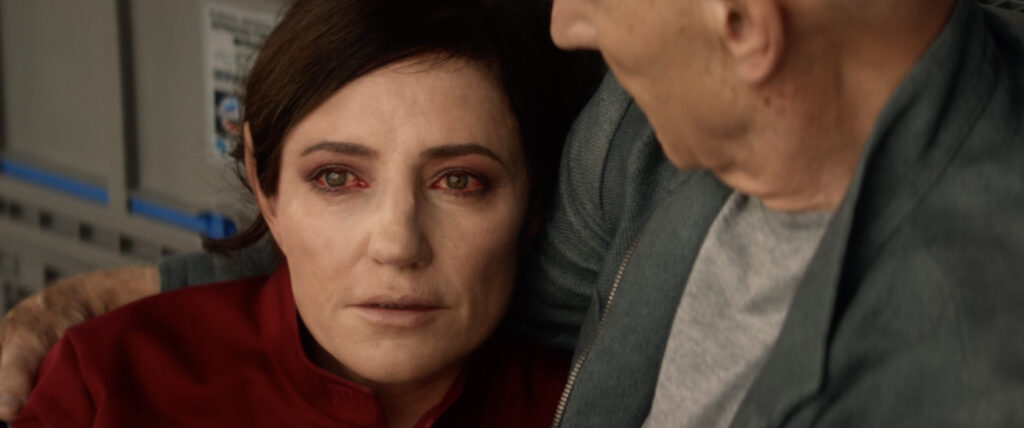
It’s kind of an accepted rule in script writing: in order for the heroes to “earn” their victory, someone or something noble must be sacrificed (usually by their own choice). Decker and Ilia, Spock, David Marcus, Sybok, James Kirk, Data…all of them willingly gave their lives to save another. So did two different Enterprises…although they really didn’t get a say in the decision. But the concept of the noble sacrifice—Star Wars, Avengers, pick a franchise!—has become pretty standard. (Granted, this hasn’t always been a “rule” in Hollywood. No one except the wicked witches died in The Wizard of Oz, for example.)
In Picard season one, the loss was Data dying…again. And in season two, Tailinn drew the short straw. Why her? Probably because she was the least important, and based on the “rules,” they had to sacrifice someone. But since the death kinda seemed unnecessary and obligatory, it also felt empty…simply an excuse for Taillinn to die in Picard’s arms. And since those two characters never really developed a chemistry (unlike Rios and Teresa…imagine having watched her die in his arms; that have been heartbreaking!) Taillinn’s death scene felt flat and uninspiring to me.
What’s worse, now we’ll never learn why Taillinn looked exactly like Laris! Yeah, they’re both Romulans, but is Taillinn a distant ancestor? This mystery was built up early and then kind of abandoned due to…lack of time? Lack of creativity? Lack of desire to pay it off for the viewers? Whatever the reason, Taillinn is dead, long live Laris. Whatever.
GONE TOO SOONG?
When Adam Soong was first introduced, the vibe we got (intentionally) was of a determined scientist and loving father, a bit fast and loose with the rules but only because he wanted his daughter to have a normal life.
When we last see Adam Soong, he is a cold-blooded murderer, hasn’t even tried to look for his prodigal daughter, and apparently has access to transporter technology—since he was able to get from rural France to the remote launch location in southern California in what seemed to be a matter of minutes. And if he does have transporters, then those timeline butterflies are now dancing the Macarena! If he doesn’t…then major plot hole. Either way, no bueno.
But perhaps the biggest plot hole of them all is why, if Soong had access to a neutrotoxin, why he didn’t use it on Picard at the gala ball? Why rely on something messy and uncertain like try to run him over? The only answer is that some camera might have filmed the handshake just before Picard collapses, then there’s an autopsy, and later on, Soong is taken in for questioning (although I’m certain he can afford the best lawyers and the most bribable judges). And of course, hit and run is also a felony, and Soong’s car had license plates. Or maybe Soong got the neurotoxin from Queen Agnes? But if so, why? They were launching a shooting attack on the La Sirena with Drone Team 6. Why waste time with handshakes when bullets are so much more efficient and prolific?
While BRENT SPINER played Soong as a great “evil villain,”—complete with smirks and taunting speeches to his victims—that’s ultimately all he was in the end…which was very disappointing. Such a great actor shouldn’t be wasted on such a one-note character. And the brief fan service at the end where Soong finds the “Project Khan” from 1996 just seemed odd. First of all, the Eugenics Program produced 70 or 80 supermen. Why choose the name of Khan? Khan simply means “ruler.” Why not call it “Project Emperor” or “Project Caesar”? And if STRANGE NEW WORLDS is to be believed, the Eugenics Wars didn’t happen on Earth in the 1990s but rather shortly after 2024.
Anyway, enough about daddy. Let’s move on to daughter…
THE TRAVELERS’ UMBRELLA…
Okay, Wesley Crusher is a Time Lord. Cool beans. Actually, it is pretty cool if you’re a Trekkie. Wesley’s disappearance at the conclusion of the TNG episode “Journey’s End” was always one of Trek‘s little unsolved mysteries…like whatever happened to Ben Sisko (who, apparently, also became one with the universe). Of course, another mystery is why Q gave Kore the permanent cure. Did he feel sorry for her? Hey, gods have favorites, right? Oh, and the mystery of why Kore looks exactly like Data’s android creations Dahj and Soji…also unsolved, it seems. (Actually, the answer is so that ISA BRIONES wouldn’t be completely tossed aside after one season like poor EVAN EVAGORA, who plays Elnor.)
Anyway, back to Wes. What was cool was revealing, at long last (this mystery dates back to 1968, folks!) who sends the supervisors all over the galaxy and figures out ways to take them from their home planets thousands of years before giving them assignments. It also explains how the supervisors know which crises to avert and which to let happen. The Travelers perceive reality in totally different ways AND they can go anywhere and anywhen. All of time and space…
Anyway, Kore is now gonna be a supervisor. Maybe Paramount+ will give her and WIL WHEATON a spinoff series or something. Wil’s already on the payroll, after all, doing the weekly The Ready Room. Some on Facebook have complained that older Wesley is essentially the same as older Wil Wheaton. In other words, he’s not really acting. Perhaps, but I like Wil Wheaton, so I’m fine if Wesley has matured into Wil. I no longer feel the need to tell him to “shut up.”
THE “BIG” KISS
Back in 1995, Star Trek: Deep Space Nine made fans gasp (and/or cheer) and shocked the world by airing one of television’s first romantic lesbian kisses—the first one having happened four years earlier on L.A. Law. And it was Star Trek‘s first-ever same-sex kiss, creating quite a stir!
Skip ahead 27 years to Star Trek‘s SECOND-ever romantic woman-to-woman kiss (yep, I checked…DISCOVERY has only featured male-to-make same-sex kissing scenes—and only a few of those on the lips). Oddly, the kiss between Seven and Raffi seemed almost anticlimactic. I mean, I’m happy they got things worked out, and I now accept their relationship much more than I did after season one’s “oh, by the way, Raffi and Seven are a thing” finale scene of them holding hands. But other than that, I don’t feel much. I’m not sure where else the writers could have taken this story, though. Seven is “fixed” (now accepting her Borg-implants), Raffi wants to work on herself a little but still be with Seven, and Elnor is alive again, meaning that Raffi can jettison the angst for now.
Other than that, I got nothin’. Same-sex, schmame-sex…a kiss is a kiss.
LAS MARIPOSAS
Yep, we all knew Rios was gonna stay in the past. That said, rather than living a quiet life trying not to affect the time-stream, he and Dr. Teresa decide to call themselves “The Butterflies” and go off to change the world. Ricardo grows up to heal the oceans with the alien life form that “Auntie” Renée brings back from Europa. So everything we were told earlier about being extra careful in the past is now completely out the window (fuera de la ventana in Spanish).
Of course, you could argue that Rios was always supposed to remain in the past, help Teresa and Ricardo Rodriguez, and be a part of saving the planet…in the same way that Scotty was always supposed to give Dr. Nichols the formula for transparent aluminum, and Kirk was always the source of his own spectacles (which were, apparently, never actually created and therefore exist in an infinite time loop).
Anyway, as with Seven and Raffi, not much to say here other than one, final thing. Rios is the captain of the U.S.S. Stargazer. He’s leaving his ship without its captain at what was a very critical moment…assuming they all return to that exact same moment, which they did. In other words, Rios is now the SARAH PALIN of Starfleet. (For those outside of the U.S., Sarah Palin assumed the office of governor of the state of Alaska, unsuccessfully ran on the presidential ticket of JOHN McCAIN in 2008, and after losing that election, remained governor of Alaska until resigning the following summer with more than a year and a half remaining in her term.)
Q AND A
As I said earlier, the scene between Picard and Q was beautiful to watch. But during a season that built up so much mystery around Q, we were left with far more questions than answers. For example…
- Once again, why did Q give Kore her “freedom”?
- Why was Q, an immortal, losing his powers and his “life”…since immortals, by definition, can’t die.
- Why was it necessary for Q to “hire” Soong to kill Picard? After all, Queen Agnes was always going to seek out Soong to help get access to the La Sirena, which would lead to the attack on the Chateau followed by Picard’s placing the key in the stone in the wall. I mean, I appreciate that Q was trying to help Picard help himself, but if you accept that, then you need to ask why Soong needed to kill Picard.
- And for that matter, why did Q need to talk Renée into quitting the mission? Just so the team would be at the gala and the Queen would take over Agnes, I guess. Q works in mysterious ways…
- Why was Q going to die alone? Wouldn’t other Qs come to see him off or at least study the phenomenon of one of them “dying” (assuming such things seldom, if never, happen)? And didn’t Q have a wife and a son?
- And finally, how was it that Q had enough energy left to zap them all back to the future and resurrect Elnor but he didn’t have enough juice to instantaneously pop into Guinan’s bar when she summoned him?
By the way, thank Q for restoring Elnor. I hadn’t really thought about it, but since Elnor was transferred by Q to the alternate reality and THEN killed, he should have stayed dead even after the timeline reset. I’d always assumed he’d just snap back to life, but he needed some Q-intervention.
Anyway, if this is the last we see of John de Lancie as Q, I’m satisfied with his swan song…even if many, many questions remain unanswered.
THE BEST KEPT SECRET IN THE GALAXY?
And finally, Queen Agnes of Borg…or as another reviewer called her: Borgati. She went forth to build a kinder, gentler Collective…or as I call them: The Helpful Honda People of Borg. And I’m fine with that. Obviously, they end up being a spin-off of the big bad Borg (which still exist), operating in the Alpha Quadrant for 250 years or so before the original Borg even get here.
But how come no one has ever heard of them? Huh?
I mean, maybe Queen Agnes is keeping a low profile (like the A-Team…”A” for Agnes in this case), but even so, it’s hard to hide Borg Drones going planet to planet and ship to ship helping out and offering to Borgify the sick and dying. And their space vessel isn’t exactly subtle! In other words, when the Borg approach the U.S.S. Stargazer, somebody should have just said, “Oh, cancel red alert. It’s the friendly Borg.” Man, just typing that sentence feels so ridiculous. These new Borg are gonna take some gettin’ used to!
Of course, now these good Borg are the equivalent of the Watchers on the Wall from Game of Thrones—even dressing in black!—waiting for the galactic plot device that will trigger the third and final season to appear againt. Have fun waiting and watching, Borgies. I’m sure you’ll get caught up on a LOT of streaming shows!
MY FINAL GRADE FOR SEASON TWO: B+
Others might (and will!) disagree with me, saying my grade is too high or too low. But I feel this was a solid season with a few clunkers in the mix. Had episode 7, 9, or 10 been a bit better, I could have justified an A- grade. But looked at as a whole, B+…which is decent and something to be proud of. I don’t think I’d give Discovery more than a B-, and that would be for this latest season.
But I do like Picard—the characters, the acting, the direction, the effects, the production values, and most of all, the music. If you haven’t been listening to the mastery of the score for each episode, you should go back and rewatch a few scenes. The music really makes the show!
Anyway, that’s all for me for this season, folks. Thanks for reading!

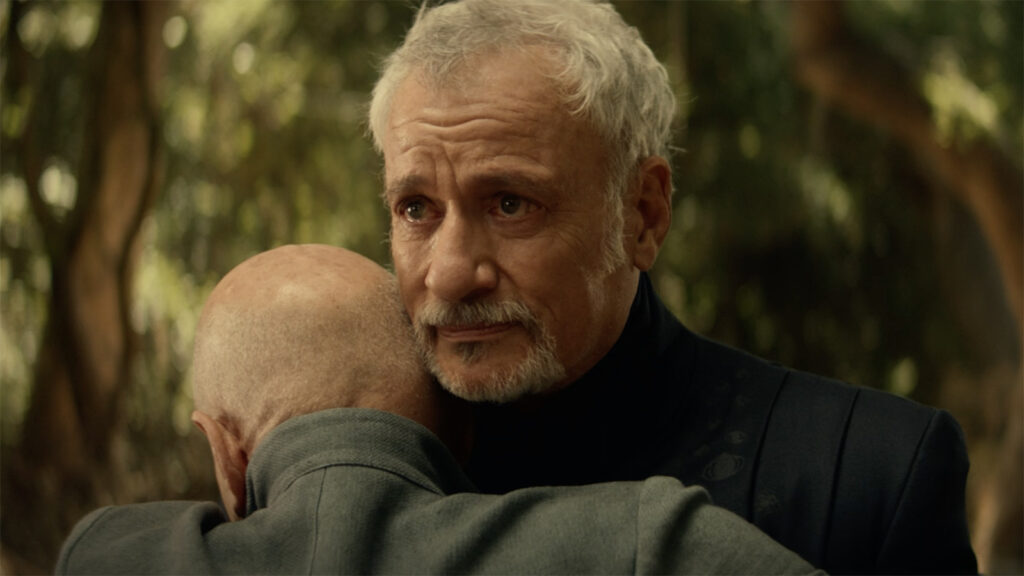
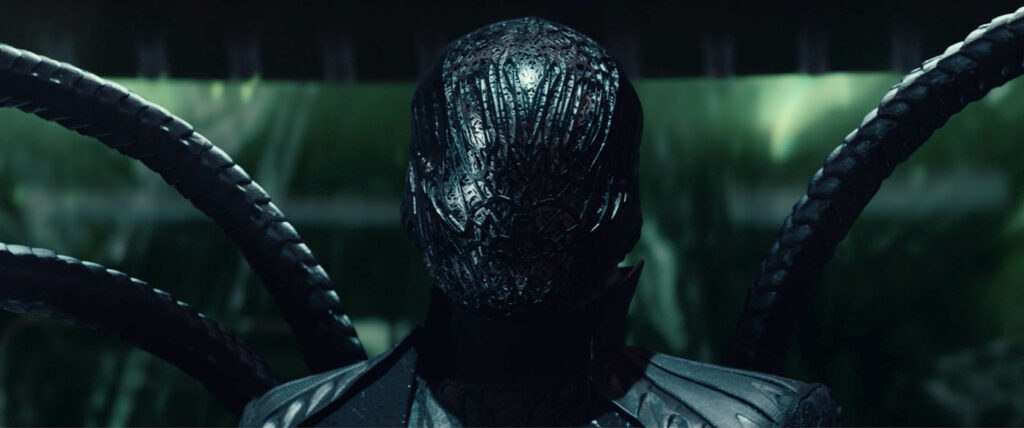
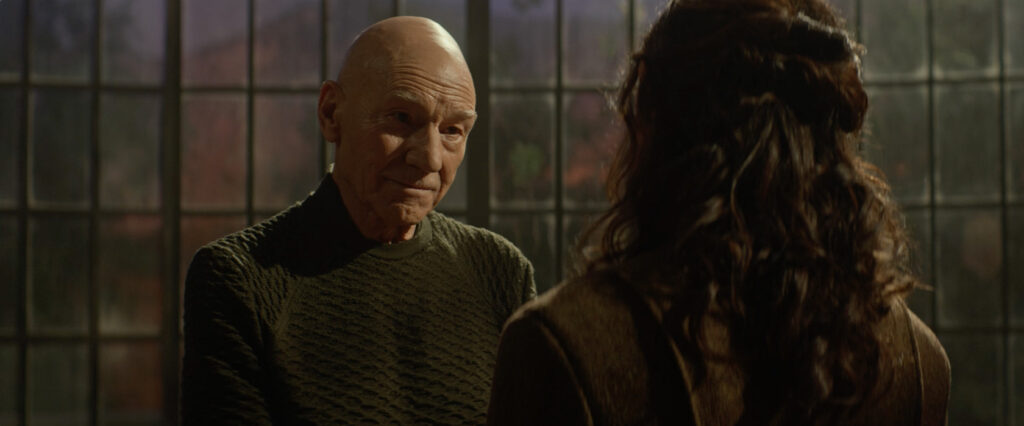
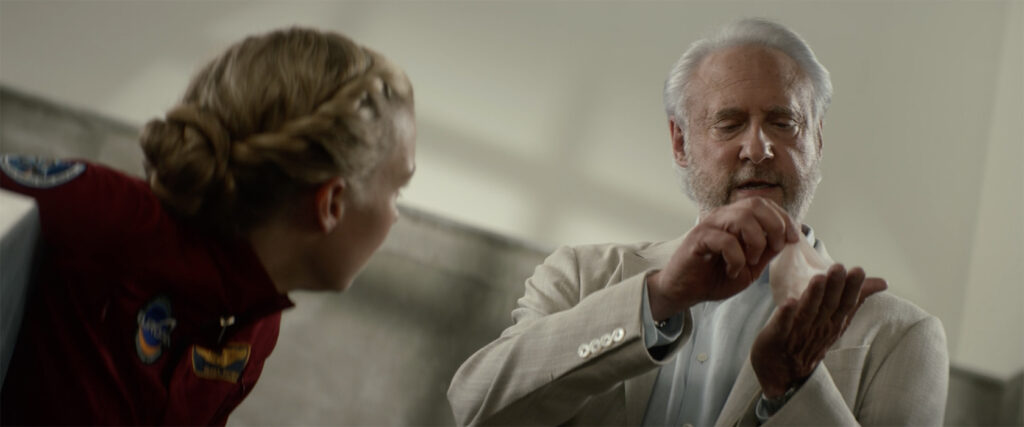
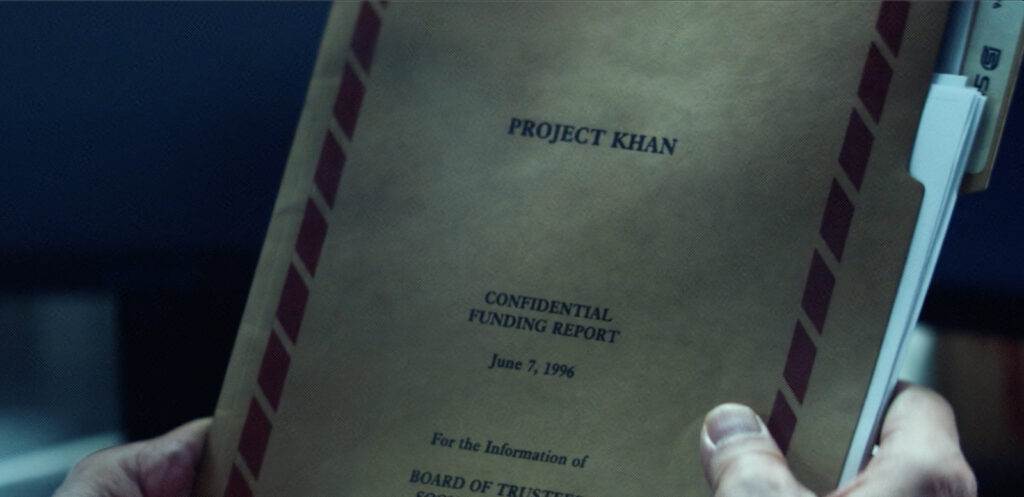
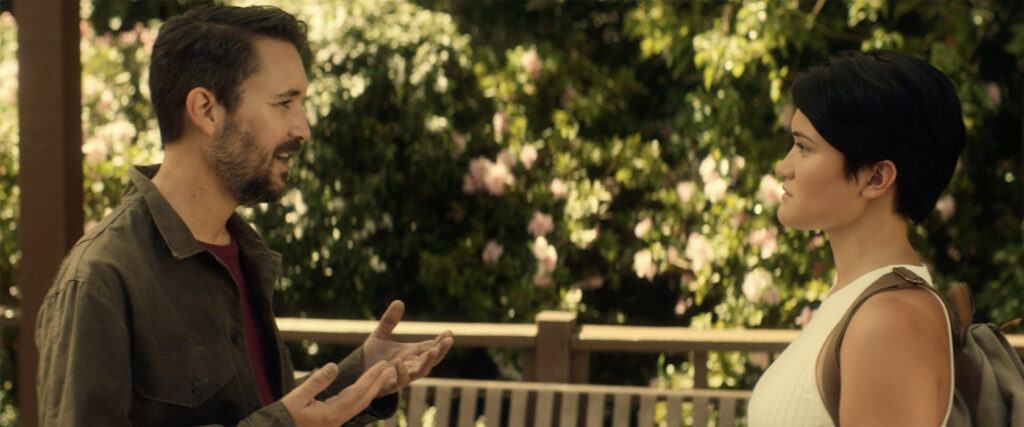
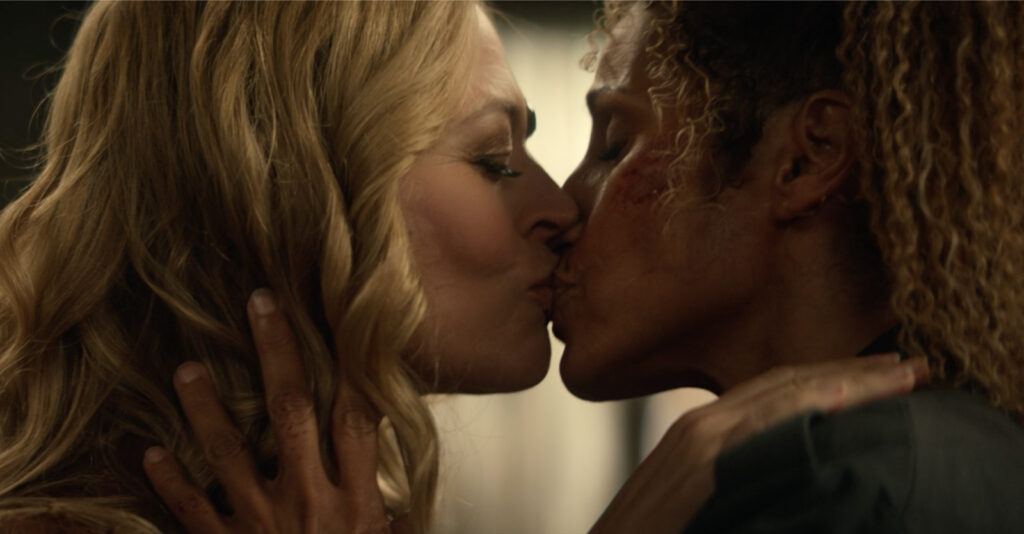
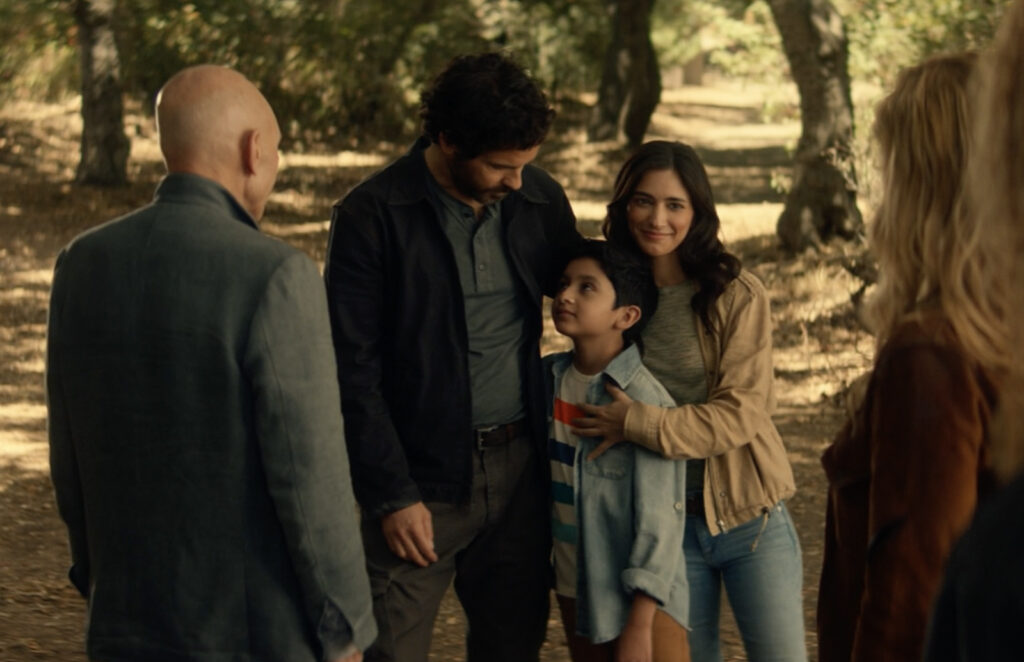
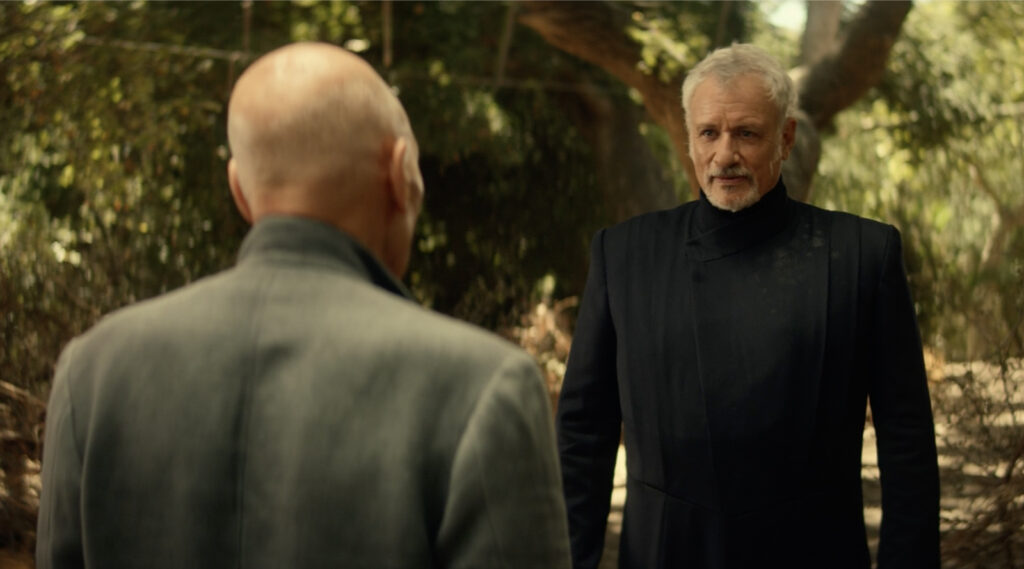
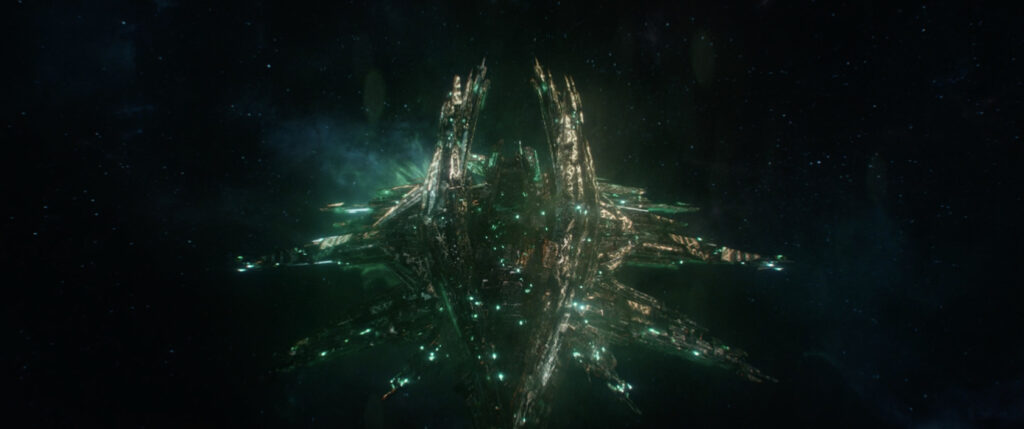
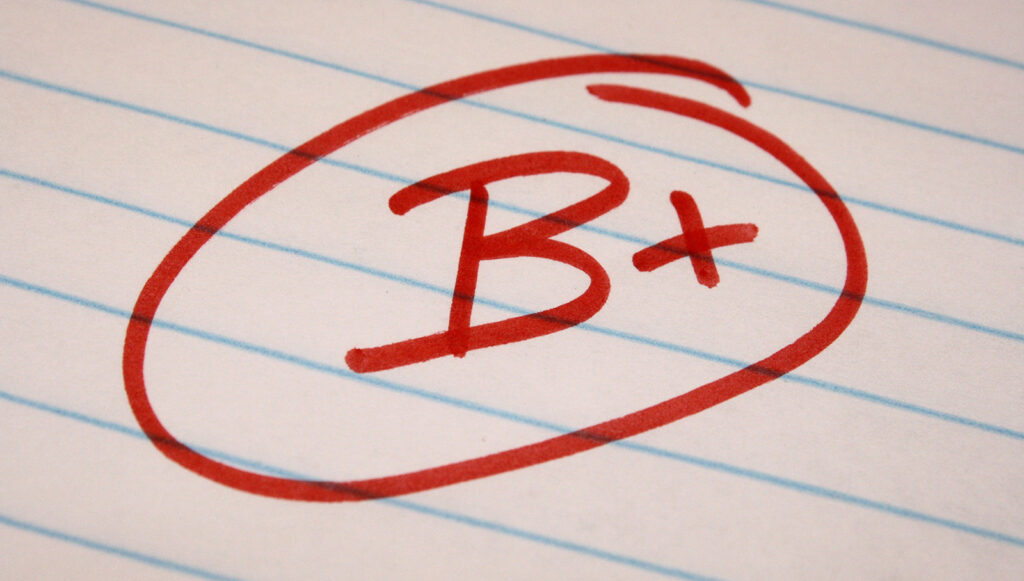
Okay, I have to disagree with you again on some of your negative points, though I do agree that it was horribly rushed, I feared back at the last episode that they had left too much to resolve in this episode. At the end of episode 8 I thought the Agniqueen would, with Soong, assault the rocket launch. Why do all of this with the spaceship if he already had those drones?
But yeah, to the disagreements, I disagree with your analysis of Agnes reveal, it makes sense to me that she would go in masked up because she knew that her younger non-Queen self would go on the bridge and that that would influence what happened in their future, Agniqueen’s past; think Doctor Strange in Infinity War seeing that the only future in which they succeeded was the one where they win, the Agniqueen could see the possible futures and knew that they needed to not know who she was in order for them to succeed in the past and allow her to exist in the present.
As for Picard not having changed significantly, it wasn’t about the destination, but about the journey!
Not learning why Taillinn looked exactly like Laris? It was a metaphor! You have no problem when the reverse happens, with Tora Ziyal changing her appearance dramatically for no reason, but when it comes to two related people having the same appearance for no reason then it becomes a problem?
Why did Q give Kore the miracle cure? Because Picard wasn’t done yet, he had more still to face about his past and thus Q needed to force Soong to want to do more and that required Kore leaving him. I don’t think it odd that Kore looks like Dahj and Soji, either metaphor again, or because Data had all of Soong’s notes/data/etcetera uploaded into him, we know that he contained all of the information about the inhabitants.
Why did Q need to talk Renee into quitting the mission? Because that was to create the alternate future which caused Picard and crew to go back to the past.
All of that said, good catch on Soong making it back to the US so quickly! And I loved the bringing back of Wesley Crusher! This episode, or rather this season feels like the setup for season 3! I have no problem with Rios staying in the past because Q said it was okay and I trust him when he said it was okay. 🙂 I think Janeway said that Q never lies, or something like that.
Part of your objections to me reduce to the 10 episode format. I would have liked to see some of what you wanted and parts seemed rushed but once the basic outline had been created, there was entirely too much material to explore in 10 somewhat short episodes. For example: Q dying. With Voyager “Death Wish” we know it’s possible for a Q to die. A couple of simple lines of dialog would have resolved that “How can you be dying”? “It is possible to choose death, other Q have done so” (or something like that) and your question is answered. So I fault the writers for not resolving some of your questions simply even if they added two minutes to one episode.
Also, while your comment about look-alikes is valid in Season 2, right now I’m just chalking it up to casting choices which I would not have made because they cause questions that you raised.
While overall I won’t quibble with your B+ report card, what I give them an A+ for the psychological level:
Rather than “Farewell”, I would have titled the last episode “Choices”. One level is about making choices: Rios chooses a quiet family life while Kore chooses a life of adventure. Picard chooses to be the person he is. Taillinn chooses to give her life because of who she is rather than accepting a male choice for her. Q chooses to spend his dying moments helping an old friend. Soong chooses to be what he is (I’m guessing he’s in season 3 given that Spiner is in it but not presumably Data). And between the last episodes, the Borg queen chooses a new path.
How many of us regret choices we’ve made that made us what we are today. Instead of a simple TNG “Tapestry” choice, a deeper emotional realization about something truly horrible like the sense that a loved parent is dead because of his actions are resolved and he chooses to be the person he is. I wonder how many people watching the show will find that resounds with their own inner trauma?
And Seven’s acceptance of the visible Borg bits was to me a lot like what someone goes through with a visible birth defect.
There’s also a significant fear conquering going on with Renee Picard and that felt right to me.
But one thing in the last episode struck me like nails on a blackboard. My quiet, emotional, reflective feeling was blown to bits by a sudden unexplained galactic destroying danger that had to be resolved immediately. Maybe it’s a season ending cliffhanger and if so I’ll partially forgive the writers but I would have much rather have seen the emotional mood of much of Episode 10 maintained even after the reversal of the ship’s destruction. (And I do agree with your mask comment for the Borg queen).
In my mind, the single worst season of Trek in its history. And that is saying a lot indicating it was worse than Discovery.
1. Complete ignorance of time travel the way we know it
2. Terrible characterizations.
3. Awful cliches
4. Bad CGI
5. Ridiculous story
6. Unbelievable events that make no sense (This one I’ll describe – the same key will open a door in 400 years from now; Borg melded into the walls aren’t there in 400 years, so much more)
7. Mustache twirling villain
8. No reason for Tallin and Laris to be exact duplicates
9. They ask the FBI agent for help and he disappears.
10. The Vulcans happen to beam up the second they meet the child.
11. Lets not talk about the Borg over the past 400 years and how that changes everything.
I could go on and on, but I thought it was downright dumb and insulting.
Interesting to compare the different reactions from the commentators on this page.
Where is the humor? TNG, even when things were serious almost always had a humorous side plot or quip. Not on Discovery or Picard. Humor made you love and care about the characters. Made them feel human. Who can forget Data trying stand-up comedy? It’s missing in these new shows.
Rios did most of the humor this season through his interactions with Dr. Teresa and Ricardo. Also, Seven and Raffi had a bit of banter (remember the police chase?). You can’t have too much humor or you end up with an episode like “The Outrageous Okona” (the one where Data does stand-up). Every so often, you need a “Chain of Command, Part II” or “In the Pale Moonlight.” Not every episode needs comedy relief.
By the way, going back to episode one, was it just me that was feeling that Unimatrix Zero had been overlooked? Seven’s reaction to the Borg appearing felt too hostile given that she had no idea as to whether it was UZ or not.
It’s possible that is WAS just you, Jack. 😉
Excellent, excellent post.
I think you hit the high and low points accurately. I still think that Picard was a breath of fresh air after last season of Discovery. (Disco is improving, but it still hasn’t hit a real stride and, sadly, I’m skeptical that it ever will…)
Ah. Time paradoxes… very, very difficult to write. The more you think about Jurati as Borg queen, the less sense the whole thing makes, as it kind of negates everything that happened with Borg up to the point of the big reveal… unless she represents a totally different faction of Borg that was separate from the original hive… and… err… but then the original Borg queen that traipsed off with them to the past remembered Picard/Locutus, so that can’t really be…. My head! It just keeps going in circles.
The major problem with the big reveal, though, is that by the time it happens you know exactly know the Borg behind the mask, so it was another anticlimax climax.
The season bogged down when the screen got all hazy and everything was happening in dream sequences within Picard’s head. I can stand a little of this, but too many flashbacks are just an excuse for exhibition and can get in the way of story telling. Entire episodes in dreamland frustrate me as it becomes difficult to discern what is dreamland and what is reality for the characters.
I agree that the whole plot arch that Picard cannot form relationships and Q wanted to help him grow is a neatly sentimental, but kind of belies what we know of Picard from 7 seasons of STNG and 3 movies. So the writers invented a revisionist history so that they could resolve an inner conflict that never existed…
In spite of all that–and all you wrote above–I really did like the 2nd series. I enjoyed Picard’s first season with all its many issues and problems but think that this had some episodes that really hit the ball out of the park. And, even with the flaws, I still enjoyed it.
I think few people who watch the show imagine themselves as a writer (or team of writers) sitting on front of a blank white-board, asking, “Okay, what can we do with Jean-Luc Picard’s character this season that is fresh and interesting?”
Imagine that’s you (royal you, not you specifically, JL), and now try to start writing a story arc for him for next season. See what you come up with and how many fans complain about it. 🙂
In short, the Picard writers’ greatest adversary is, after all is said and done, all the writers who came before and picked the tree bare of fruit.
I do hope that the tree isn’t really so bare and that there are still new stories to tell. (And if not, just borrow from some standard plots in literature and apply them here…)
In spite of the shortcomings, the strength of the writing this season is that they were able to break down the story into episodes that were relatively tight, coherent, and moved the story along. Additionally, the cast and crew was superb and carried out the vision as well as could possibly be done. (I was really impressed by Lea Thompson’s directing in the 3rd and 4th episodes–who knew!) Additionally, I’ll be happy to see anything with Patrick Stewart in the lead–whatever ‘it’ is, he’s still got it.
The jury is out on Strange New Worlds, but–so far–Picard, season 2, at least for me, has been a great addition to the franchise.
@FFF Jonathan, I think a lot of people would feel satisfied with JLP reading the phonebook, so anything else feels like a plus! 🙂
@The other Jonathan, they explained in episode 2 that the Queen can sense other timelines, that was how the Queen in the altered timeline in episode 2 knew of Picard/Locutus, because she could sense that original timeline. That was also why (AFAIK) the Agniqueen said that they needed two Renees, because she could sense all the possible “future” timelines, and thus knew that this was the only way to make things better.
Hmm, Tallin (however it is spelled)
Did she actually die?
She’s not human, so the poison may not have affected her the same way. On top of which, the Travellers would presumably inoculate the Supervisors for every known hazard possible, especially since they know her future.
What did they do with her body? Leave it there for the humans to find, or does Wesley pop by in his TARDIS and snatch it up, revive her and drop her on Romulus ( as Laris) in time for her to influence events to protect Picard.
Your mission is to protect the Picard family.
Stage one of your mission,
Go to Earth in the 2000’s and protect Renee Picard, so Jean Luc will turn out the way we want. Work with him to protect the future.
Stage 2, join the Romulan fleet and protect Jean Luc. Then join him on Earth after Romulas gets destroyed (sorry, we’re not going to do anything about that).
Questions Questions
Excellent point about what they ended up doing with Taillinn’s Romulan corpse!
“unless she represents a totally different faction of Borg that was separate from the original hive”
“I think few people who watch the show imagine themselves as a writer …”
There is so many stories in the Trek universe that I find myself answering questions like (The Other) Jonathan L ask by going back to some episode or other. Specifically now I’m thinking of Voyager’s “The Unity” where a “Cooperative” is created from former Borg. I’d love to know what the writers had as background when they wrote what they did.
Another thought – some complained about “Project Khan” reveal given canonical history but an image of that document clearly shows “Confidential Funding Report June 7, 1996”. When I saw that in a review, I was reminded that writers, directors etc are sometimes really sneaky in a fun way. Clearly in this case the specific info was known. https://blog.trekcore.com/2022/05/star-trek-picard-season-finale-review-farewell/
Finally, of course I read reviews because I want people to agree with me. But what’s truly fun is when a reviewer spots something I missed whether it be a date on a file folder or a plot element and when a reviewer puts into words something I had not fully realized. So, keep it up, Jonathan!
I’ll do my best!
A coda: Patrick Steward had trauma in his childhood which not everyone might know: “I was brought up in a somewhat violent background too, and I know how important it is to find reasons why things are happening. And sometimes to take responsibility for why they’re happening, too.”
And one web site noting how some people reacted to a story about someone feeling responsible for the death of a parent ended the piece with this:
We would encourage anyone who identifies with the topics raised in this article to reach out. Organisations who can offer support include Samaritans on 116 123 (www.samaritans.org) or Mind on 0300 123 3393 (www.mind.org.uk). Readers in the US are encouraged to visit mentalhealth.gov or the American Foundation for Suicide Prevention.
https://ca.news.yahoo.com/star-trek-picards-patrick-stewart-213700865.html